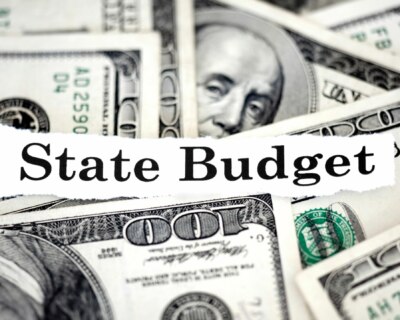
The Truth About Cash Balance Pension Plans
Reform opponents rely on misleading arguments
 Critics of Governor Jindal’s proposed “cash balance” pension plan for state employees have made a number of inaccurate claims. The current retirement systems have amassed an astonishing $18.9 billion in unfunded liabilities, but reform opponents defend the status quo with scare tactics while relying on a flawed report from the Legislative Auditor. These critics claim that switching from the current defined benefit plan to a cash balance plan would increase costs to the state, drive up taxes, and even force people into poverty. In fact, this reform would put Louisiana’s retirement systems on a more sustainable path, protecting state employees and taxpayers alike.
Critics of Governor Jindal’s proposed “cash balance” pension plan for state employees have made a number of inaccurate claims. The current retirement systems have amassed an astonishing $18.9 billion in unfunded liabilities, but reform opponents defend the status quo with scare tactics while relying on a flawed report from the Legislative Auditor. These critics claim that switching from the current defined benefit plan to a cash balance plan would increase costs to the state, drive up taxes, and even force people into poverty. In fact, this reform would put Louisiana’s retirement systems on a more sustainable path, protecting state employees and taxpayers alike.
A cash balance plan is a type of retirement plan that incorporates the minimum benefit of a traditional defined benefit with the predictable cost and flexibility of a defined contribution. In a cash balance system, each employee’s benefit is defined as the value in his or her account. The value of an employee’s account accumulates much like in a defined contribution plan—the account value is equal to the sum of annual contributions (both employee and employer) and annual “interest” credits (like investment returns in a defined contribution plan). As in a traditional defined benefit plan, though, employees are guaranteed a minimum benefit because the annual interest credit applied to employee accounts is legally required to be at least zero. That is, employee accounts can never lose value.
Beyond this minimum benefit guarantee, the employer has considerable latitude in structuring the interest credit and may use it as a mechanism for sharing investment risk with employees without fully subjecting them to market fluctuations. In the case of House Bill 61, the employee is guaranteed a minimum return of zero percent interest, and when the state’s investments earn money, the employee’s rate of return is 1 percentage point less. In other words, if the state’s investments gain 10 percent, the employee’s account is credited with a 9 percent return for that year. But if the state loses 10 percent, the employee’s account loses nothing.
What about the claim that a cash balance plan will cost the state and taxpayers more? The Legislative Auditor has made this claim and others have repeated it, without explaining why a respected independent consultant firm, Buck Consulting, was wrong in finding that Jindal’s plan would save the state approximately $52 million over five years.
Even more alarming is that the Auditor’s report seems to lack a sound understanding of the plan’s basic terms. The report claims, “Our analysis shows that the total normal cost will exceed 12 percent of pay, and the employer normal cost will exceed 4 percent of pay, because interest credits granted under the [cash balance] plan, on average, will exceed 8.25 percent.” In fact, the only way that the average interest credits would exceed 8.25 percent would be if the average year of investments had at least a 9.25 percent rate of return. If Louisiana does that well with its investments, there is no reason that costs to the state would rise. Further, if the fund has positive average returns over a long period of time, the plan would generate a substantial surplus that could be used to lower the state’s cost or could be distributed to plan members.
Contrary to the Legislative Auditor’s report, there is only one reason that state employers would have to pay more than 4 percent of payroll into a cash balance plan: if investments systematically lost money. Given that employees are guaranteed at least a zero percent rate of return, systematic investment losses over a long period of time would end up requiring employers to pay above 4 percent on average. But this criticism ignores the fact that a traditional defined benefit plan would require much greater employer contributions. The traditional defined benefit plan essentially promises employees an 8.25 percent rate of return even when the state’s investments lose money.
Even more perplexingly, the Legislative Auditor’s report claims that under a cash balance plan, the state “may take on even more investment risk than it bears under the DB plan,” and that the state will be required to invest “much more conservatively” than it does now. This is impossible: the state’s investments cannot be both more risky and less risky at the same time. Moreover, the report is inaccurate on both counts: there is no inherent reason that investment patterns would have to change under a cash balance plan. Indeed, Nebraska has had a cash balance plan alongside a traditional defined benefit plan for years now, and it uses the same asset allocation with the same investment return assumption for its cash balance plan as it does for the traditional defined benefit plan.
Another objection in the Auditor’s report is that the cash balance plan fails to provide disability or survivor benefits in the same manner as the current plan. This is misleading: in the case of disability or death, the current bill would allow the immediate withdrawal of the full balance in the employee’s account. If the concern is that the employee or their survivors would run out of money, the problem is easily fixed by allowing the worker’s balance to be converted into a lifetime annuity in the event of disability or death. With an annuity, there should be little risk of the employee or survivors becoming “wards of the state,” as the Auditor’s report ominously warns.
In short, a cash balance plan provides employees with greater flexibility and predictability, while providing the state with a way to avoid the massive unfunded liabilities that arise when benefits are promised without regard to contributions or fund experience. Given the burden that has already been placed upon Louisiana’s taxpayers by the current system, legislators should take the responsible course of action and switch to the cash balance plan.
Kevin Kane is the president of the Pelican Institute for Public Policy.




